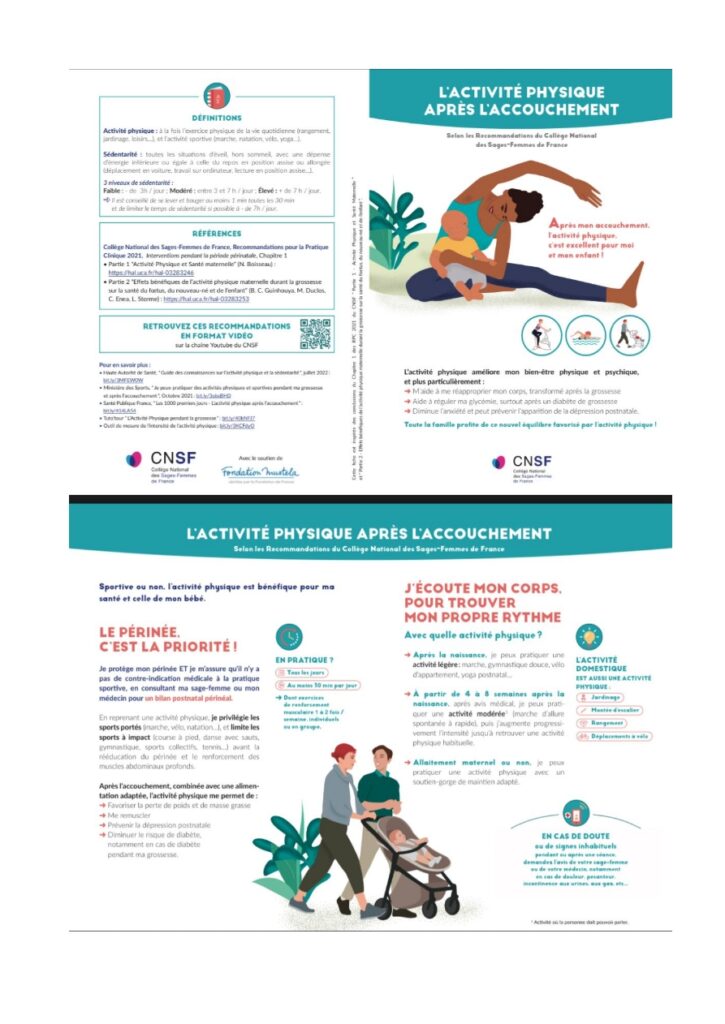Post-delivery and pregnancy
THE POST-PARTUM REPAIR PROCESS AND SUPPORT
The post-partum period, which can last several weeks, is a fragile time marked by the fatigue related to the efforts of childbirth, by the sudden hormonal changes (the fall in progesterone blood levels and its effects on the psyche) and, of course, by the baby's presence.
Symptoms
During these early days, rest is essential, both to recuperate physically and to adapt to the arrival of baby, especially if it's your first. Hormonal upheavals tend to encourage feelings of doubt or sadness, the famous " baby blues ". This condition is common in the days following childbirth, and its signs are reminiscent of those of depressionincluding in the form of Sleep disorders,. This phase, which usually lasts less than two weeks, should not give rise to feelings of guilt. Rest helps reduce its effects. If the baby blues persist beyond the first two weeks, it's essential to discuss them quickly with your doctor or midwife.
When it has been necessary to incise the perineum, it is important to take every precaution to prevent the wound from becoming infected (the perineum is exposed to micro-organisms from the intestinal and vaginal flora). The wound must be cleansed several times a dayThen brush with eosin (like a baby's cord) and blow-dry.
Loosening of the perineum may be accompanied by urinary problems such as stress incontinence or urinary urgency. phlébite (« thrombo-embolie "). After a Caesarean section, anticoagulant injections are given every day for a week to ten days.

PREGNANCY
Pregnancy and the postpartum period can trigger depression and anxiety. It's important to recognize signs of depression - such as prolonged sadness, hopelessness or loss of interest in previously pleasurable activities - that can be mistaken for pregnancy symptoms.
What is depression?
Depression is a common illness that can be mild or very severe. It's more than feeling sad or upset for a short time, or grieving after a loss. Depression changes your thoughts, feelings, behavior and physical health. It affects the way you function in your daily life. It can also affect your relationships with family, friends and colleagues. Depression can occur at different times of life or in different situations.
How common is depression during pregnancy?
Depression is common during pregnancy, affecting around 1 in 10 pregnant women. Some women experience depression and anxiety for the first time in their lives during pregnancy or after childbirth. (Read more Post-partum depression to find out more about depression after pregnancy).
What are the signs of depression during pregnancy?
Signs of depression can seem like the normal ups and downs of pregnancy. A blue mood from time to time is normal. But it's important to know the signs of depression. Talk with your obstetrician-gynecologist (ob-gyn) if you experience any of these signs for at least 2 weeks:
- Depressed almost all day, almost every day
- Loss of interest in work or other activities
- Feeling guilty, hopeless or worthless
- Sleep more than normal or have difficulty sleeping
- Loss of appetite, weight loss or eating much more than normal and gaining weight
- Feeling very tired or lacking energy
- Difficulty paying attention, concentrating or making decisions
- Being agitated or slowed down in a way that others notice
- Thinking about death or suicide
